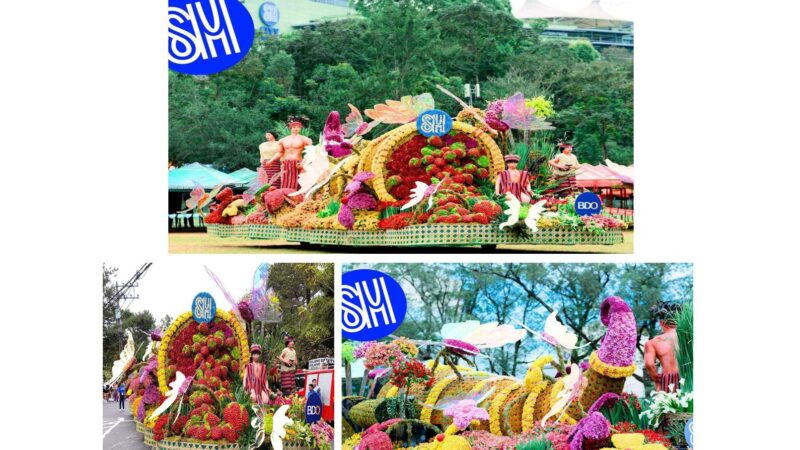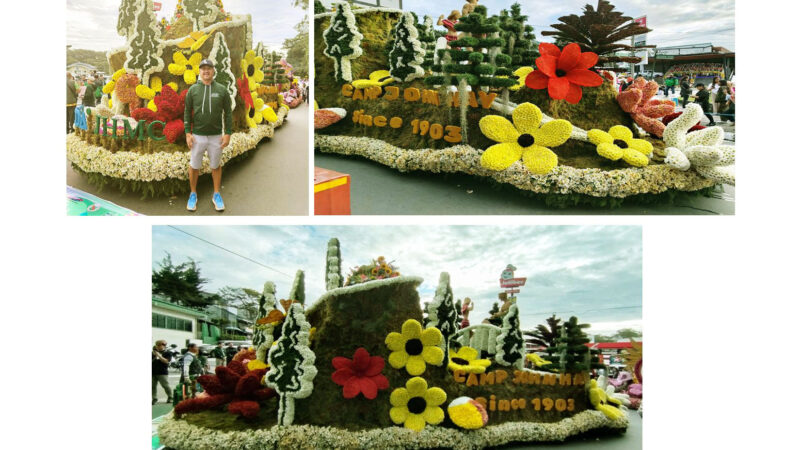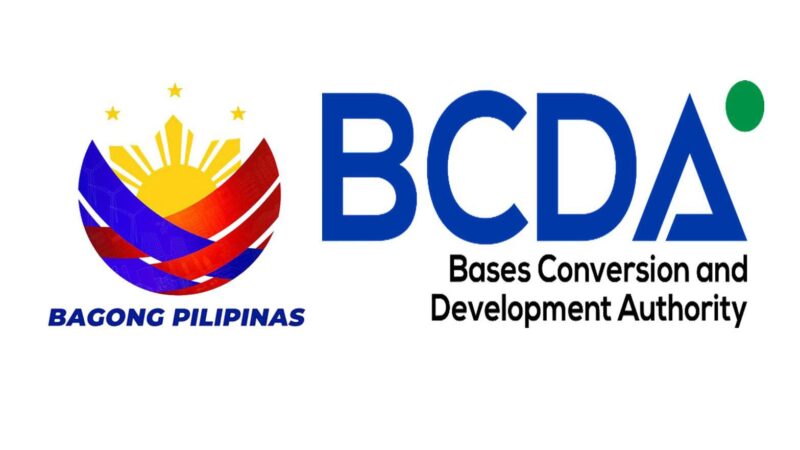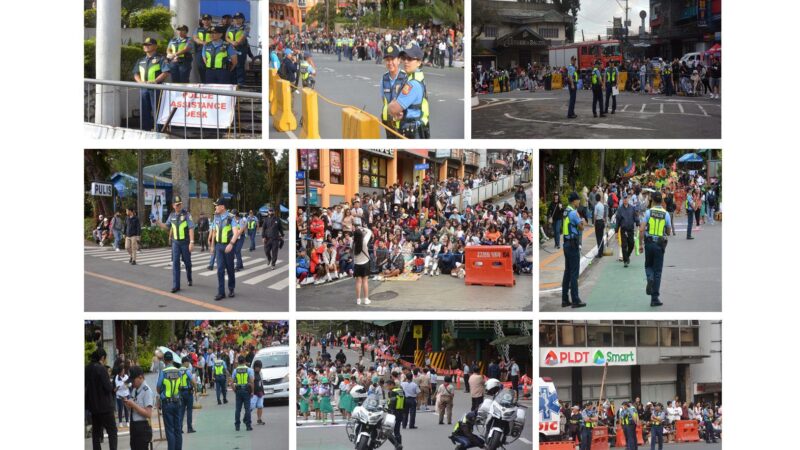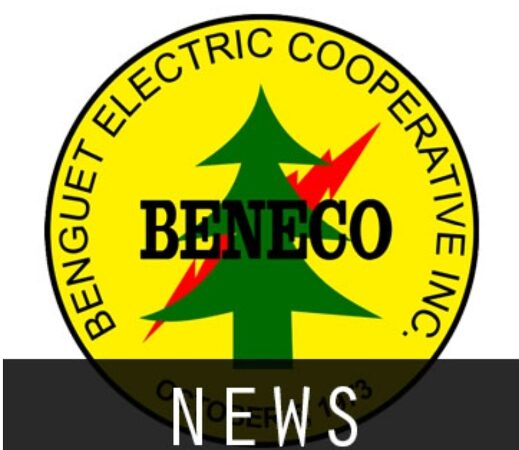City Greenhouses Gasses (GHG) reduction efforts, Climate Change Mitigation and Adaption (CCMA), related plans and programs presented om Climate Change Summit

The city’s response to climate change anchored on the City’s Environment Code and Local Climate Change Action Plan (LCCAP) were presented to academic, socio-civic, local government officials and stakeholders’ groups during the first climate change summit, Feb. 9 and 22, at the Baguio Cultural and Convention Center.
Speakers were assigned for various topics: an overview on climate change; emissions inventory; provisions of the Baguio Environment Code; the Local Climate Change Action Plan; Roadmap towards Sustainable Development; Transport, Electricity, Water, Solid Waste Management issues and action plans against climate change; and Baguio’s Comprehensive Development Plan.
Mayor Benjamin Magalong who served as keynote speaker gave data on the city’s breached carrying capacity on basic services and utilities. Representatives of the city utilities presented plans, programs and activities in combating climate change; while chair on Health and Sanitation, Ecology and Environmental Protection committee Councilor Betty Lourdes gave a detailed report on the Sangguniang Panlungsod’s Legislative Support and initiatives against climate change.
Assistant head of the City Environment and Parks Management Office (CEPMO) Engr. Marivic Empizo delivered the rationale of the summit, while the City Planning, Development and Sustainability Office head Archt. Donna Rillera-Tabangin ended the summit sessions with topics on long-term strategy, roadmap to 2040 and visioning.
The theme for the first climate summit is “Sama-samang Tumutugon Sa Hamon ng Nagbabagong Klima.”
The LCCAP which is planned for 9 years (2021 to 2030) is anchored on local government’s major planning documents such as the Comprehensive land use plan (CLUP), Comprehensive development plan (CDP), and the 15-point collective core agenda – Executive Legislative Agenda (ELA) from 2020-2022.
The 15-point ELA contains plans on speeding up government action; peace and order condition, traffic management, responsive education program, youth empowerment, expanded health and social services, tourism, culture and arts, crafts and heritage, market modernization, disaster management, empowered barangay governance, entrepreneurial promotions, poverty reduction, resolving ancestral lands and claims; and revitalizing the environment wherein concerns on global warming and climate change belong.
One of the issues focused on is climate adaptation; the response which intends to reduce the vulnerability of human and natural systems to the impacts of climate change and related risks; while mitigation is a direct or indirect response aimed at reducing greenhouse gas emissions. The priority sectors include the environment, population, social, health, infrastructure, institution, economic and tourism.
In 2010, a climate change adaptation task force was created as to Republic Act 7297 or the climate change act of 2009. As to the report and result of the situational analysis; the city should prepare for intense rainfall, stronger typhoons and extreme heat including hazards association with climate change: rainfall-induced landslide, floods, hazards caused by typhoon-strong winds and extreme heat urban heat islands intensity (UHII).
The city’s response to the report includes the strict implementation of policies and provisions of the environment code for: the number coding scheme; pedestrianization of Session road; and fuel quality, clean air monitoring, motor vehicle emission standards and testing as implemented by the Roadside Inspection Testing and Monitoring Team (RITMT) from the CEPMO.
Other measures taken were: bike lanes for non-emission transportation, improvement of sidewalks – thus, walkability around the city, slope protection thru natural vegetation and preparation of city shelter plan. In conformity to these plans, are those from the City Disaster and Risk Reduction Management Office: disaster mitigation and prevention, disaster preparedness and response.
For rainfall induced landslides as to NCCAP priorities: measures such as dredging of creeks and rivers, preparation of comprehensive urban drainage master plan, flood mitigation, cleanliness of city parks, landscapes of parks, tree management program, wastewater management, clean-up drives were implemented in parks and waterways around the city. Technology was also utilized for said measures.
The LGU citizen response and innovative policies and programs are tree nursery operation and management; tree planting events through the pine tree/saleng festival, management of trees in private properties; Baguio city’s green green green program (arboretum and bambosetum); and reviving pine trees of the world park.
Other ways to lessen the impact of climate change is alternative and renewable energy use.
For the corporate or government or the academe; raising awareness among employees, students and clients would help, including choosing green infra, equipment and sustainable suppliers, promoting environmentally-friendly ways of working and increased work efficiency.
Individuals could also help thru: choosing to walk, transforming transport or reducing power use, buying and using local products, not wasting food, planting and nurturing trees, and focusing on planet-friendly investments.
The LGU shall collaborate with the barangays, socio-civic groups and all stakeholders to ensure the widest and continuing information dissemination to facilitate and increase awareness and preparedness of city residents.
The integration of climate change adaptation into the curriculum for the public and private academe shall also be done through the Baguio City Schools Division (Dep-Ed).
The theme for the first climate summit is “Sama-samang Tumutugon Sa Hamon ng Nagbabagong Klima.” – JGFianza


